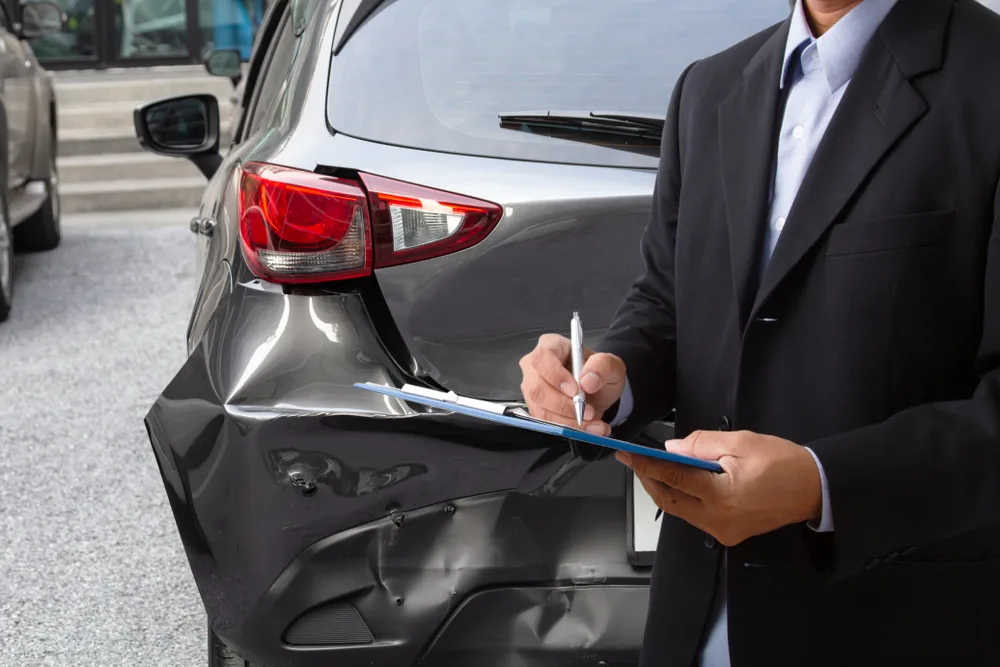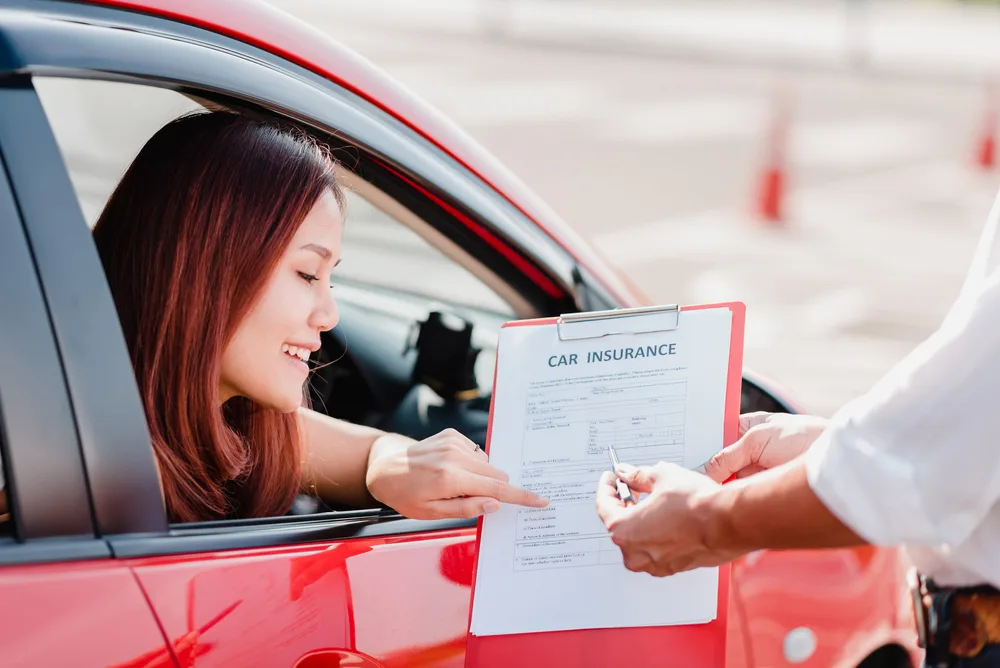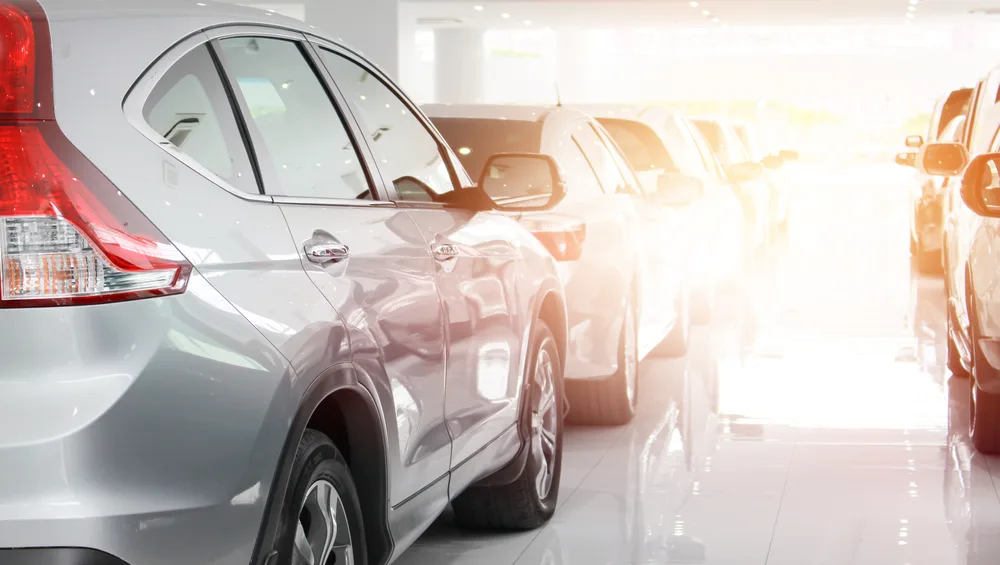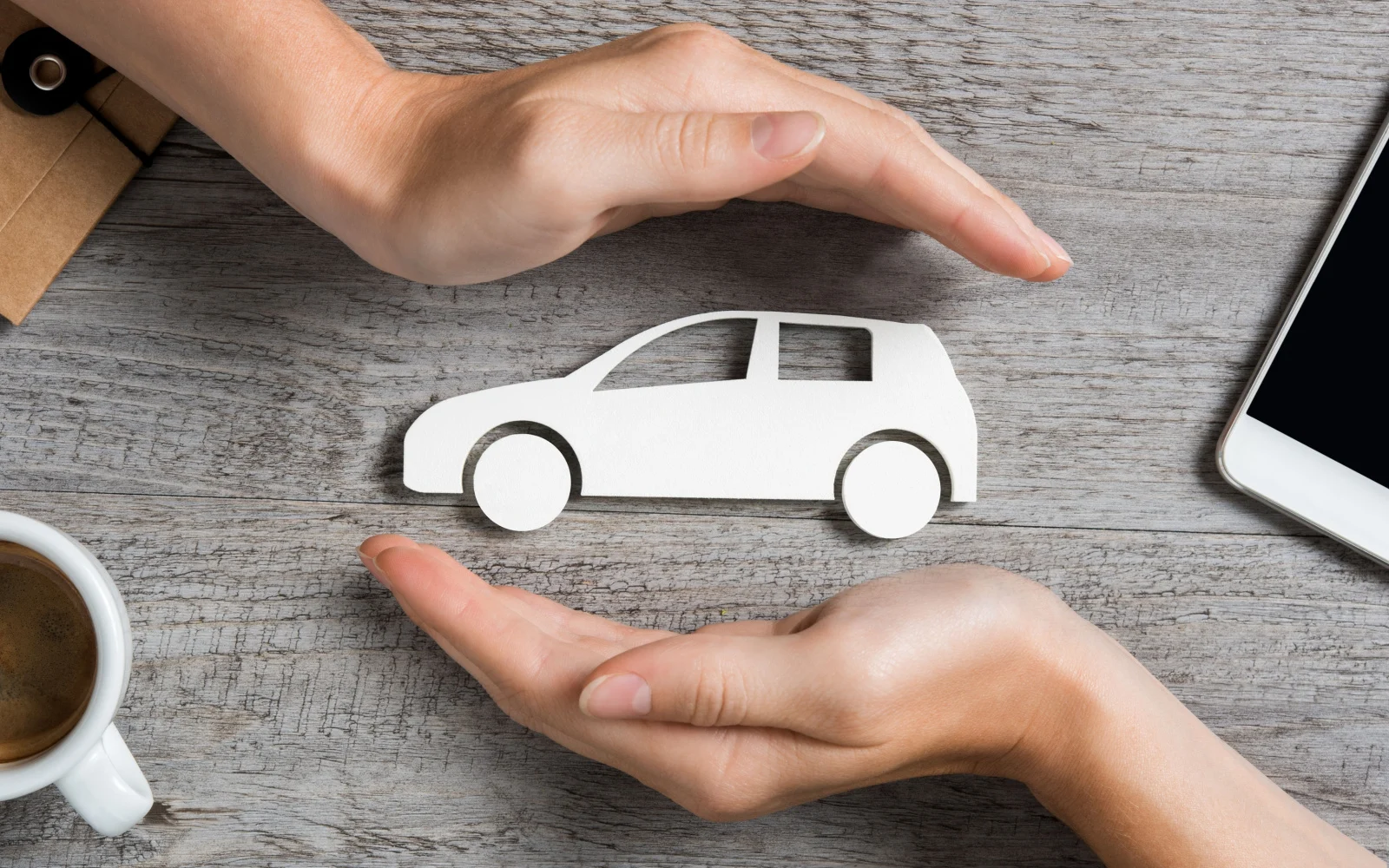They’ll always try and upsell you at the rental counter, but should you get insurance for a rental car? Usually, you won’t need it – but sometimes, it’s really smart to add on.
We look at the reasons you may or may not need rental car insurance in this guide. Find out if that extra insurance policy is essential or just a costly add-on below!
The best way to find rental cars. Period. Find thousands of rental car deals from every major company, all in one place.
- Earn points with eligible trip purchases
- Deals from nearly every major rental company
- Save big when you bundle your trip
Should You Get Insurance for a Rental Car?
- Rental car insurance is only required for renters without auto insurance
- Compare rental car insurance with your current auto insurance plan
- Consider the average $23-$58 cost of rental car insurance
You’re about to take a trip and need to rent a car – should you get insurance for a rental car? It’s a question we all ask ourselves at the rental counter, when it’s too late to really weigh the pros and cons.
Taking a little time to learn about rental car insurance, what it includes, what it doesn’t cover, and whether it’s really necessary will help you make the right decision when it’s time to rent.
Before we get into it, let’s get a few basics out of the way.
First, rental car insurance is always an optional add-on that you’re not required to pay for – unless you don’t have personal auto insurance coverage.
If you don’t currently have an active auto insurance policy, your rental car company will require you to purchase supplemental liability coverage (at minimum) to rent the car.
Second, it’s important to know your current auto insurance policy and what it covers so you can accurately compare the add-on insurance coverage from your rental car company.
Who wants to pay for so-so coverage from a rental car company when their own personal policy offers broader or additional coverage?
Finally, you need to know and consider how much rental car insurance will cost you in addition to the cost of renting a car. In most cases, it’s somewhere between $23-$58 per day.
The cost alone has most renters seriously questioning whether the coverage you buy at the counter is nothing more than a money-grabbing scheme or if it’s truly helpful or necessary in the event of an accident, theft, or liability claim.
We’ll cover this and more in detail below so you can find out if rental car insurance is a good idea for you.
What Does Rental Car Insurance Cover?

JC_STOCKER/Shutterstock
In order to find out if you really need the extra insurance policy your rental car company offers, you need to know what these types of plans usually cover.
It’s possible that your own auto insurance policy may offer enough coverage to make the rental car plan unnecessary, so take a look at what’s usually included in rental car insurance below.
1. Collision Damage Waiver
- What it does: Says you’re not responsible for paying for car theft/collision damage
- What it doesn’t do: Cover reckless driving or misc. expenses after theft/collision
- How much it costs: $10-$30/day
Rental car insurance includes a collision damage or loss damage waiver that covers theft or damage to the rental car in the event of a collision.
This type of waiver prevents the rental car company from holding you financially responsible for covering the vehicle theft or damage that may occur in a collision caused by factors beyond your control.
That means if you’re driving recklessly or under the influence and get into a collision, the waiver won’t cover you.
A loss damage waiver or collision damage waiver won’t insulate you from other expenses the rental car company may charge after theft or a collision.
This can include loss of use expenses that the company charges when the rental car is out of service due to theft or collision or towing expenses.
Since adding a collision damage waiver to your rental car bill can tack on an extra $10-$30 day, it’s not cheap but may bring you peace of mind if theft or a collision occurs.
2. Supplemental Liability Coverage
- What it does: Protects you from 3rd-party injury, property, or vehicle damage claims
- What it doesn’t do: Protect you if you violate the rental agreement or damages exceed coverage
- How much it costs: $8-$17/day
Supplemental liability insurance (SLI) coverage from a rental car company kicks in if you injure someone or damage another person’s property or vehicle while driving the rental car.
This type of supplemental coverage helps ensure you won’t have to pay for the damage out of pocket, but it’s still subject to you following the rental agreement.
That means if you violate the agreement – like speeding, drinking while driving, or purposely hitting another car – you won’t be covered by SLI.
At a cost of around $8-$17 per day, this add-on can be pricey but may be worth it if your own auto insurance policy doesn’t include good liability coverage.
Your rental car company will have liability limits in place, usually between $300,000 to $1,000,000. If damages exceed that amount, you may be responsible for paying.
Some rental car companies have exclusions that prevent SLI from covering injury, property, or vehicle damage to people that live with you if you’re related by marriage, blood, or adoption.

hedgehog94/Shutterstock
3. Personal Accident and Personal Effects Coverage
- What it does: PAI covers medical bills/death; PEC covers lost/stolen property
- What it doesn’t do: Provide unlimited coverage or replace medical/life insurance
- How much it costs: $5-$11/day
Personal accident insurance (PAI) and personal effects coverage (PEC) are usually bundled together for one price in rental car insurance.
Personal accident insurance covers a limited amount of emergency medical expenses and provides accidental death coverage for the renter/driver and passengers in the car at the time of the accident.
Personal effects coverage pays for lost, damaged, or stolen personal property that was in the rental car. There are limitations on the amount (usually $600/person) and what types of property it will cover.
Personal accident insurance means you and any passengers in the car will receive a payout to cover medical bills if anyone is injured in the rental car.
In a true worst-case scenario, death benefits are included in PAI case an accident results in the death of the driver or passengers.
There’s a limitation on PAI coverage through a rental car company, however, and it’s not a replacement for medical or life insurance.
At a bundled cost of around $5-$11 per day, it’s the cheapest rental car insurance add-on but can be worth it for the accident and death coverage with property reimbursement benefits.
5 Reasons You May Not Need Rental Car Insurance

Atstock Productions/Shutterstock
Most of the time, the answer to “Should you get insurance for a rental car?” is “No.” That’s good news if you don’t want to spend extra on insurance at the counter!
You typically won’t need rental car insurance if you already have car insurance (unless your plan specifies that it doesn’t cover rentals), renting is rare for you, or your existing coverage trumps the policy your rental company is offering.
- You have a solid car insurance policy. If you already have car insurance with good coverage (full coverage, ideally) and have checked to make sure it covers rental cars, you don’t need rental car insurance. Your own coverage is probably far superior to the policy you’d get at the counter.
- You don’t rent cars often. If renting a car is a rarity for you, there’s likely no harm in letting your personal car insurance plan cover you instead of springing for additional coverage. Logic says your odds of needing to file a claim on an accident, theft, or damage that occurs in your rental are lower the less often you rent.
- Your deductible is affordable. If your current car insurance policy has an affordable deductible, there’s no reason to get additional insurance coverage for the rental car. Since your personal plan will usually offer broader coverage, you’ll be better off paying the deductible and benefiting from the more extensive coverage.
- You have medical or life insurance. Some people gravitate toward the extra insurance due to the extra personal accident insurance or emergency medical expenses/death coverage. But if you already have good medical insurance or life insurance, these added benefits are less important for you.
- You’re booking with a credit card. Most major credit cards (Visa, Mastercard, and American Express) except Discover offer primary or secondary rental car insurance in the form of a collision damage waiver when you book the car with your card. Some will even reimburse you for the cost of your personal car insurance deductible if you need to file a claim in a rental car.
5 Reasons You May Need Rental Car Insurance

VGstockstudio/Shutterstock
There are a few scenarios where getting rental car insurance may be required (like if you don’t have a personal car insurance policy) or help you get the most peace of mind.
Here are 5 reasons you may need rental car insurance. If any of these criteria apply to you, consider getting at least one type of add-on insurance from your rental car company to ensure you’re fully covered in your rental.
- You don’t have car insurance. If you don’t have a car of your own or just aren’t currently insured, you’ll be required to purchase supplemental liability insurance (SLI) to rent a car. You may want more coverage than SLI provides, so consider the collision damage waiver and personal accident insurance options.
- You have bare minimum car insurance. If you have the minimal amount of liability coverage on your auto policy, you may want the additional personal accident insurance, personal effects coverage, or collision damage waiver to help provide additional coverage when you drive the rental.
- Your car insurance deductible is high. Even a great car insurance plan can come with a high deductible, making you wary of filing a claim with your own agency in the event of an accident or theft. Getting rental car insurance is a way around paying a high deductible.
- You want maximum coverage. If you’re worried about an accident, theft, or liability from damaging or injuring a third party in your rental car, getting the extra insurance at the counter can give you peace of mind with more coverage for each of these events.
- You rent cars more often than most. If you rent cars more often than most people, you may spring for the extra insurance coverage to avoid filing claims with your own personal car insurance policy or to help keep premiums low in the event of an accident, damage, or theft.
Will My Car Insurance Cover a Rental Car?

interstid/Shutterstock
Your own car insurance coverage is the main factor in deciding whether or not you should get insurance for a rental car.
In almost all cases, your personal car insurance policy will cover you when you’re driving a rental car. That means you can safely decline the rental car insurance add-on at the counter.
The limitation here is the type and depth of coverage your own car insurance offers. Your plan will cover you in a rental the same way it covers you in your personal vehicle – no more, no less.
If you have full coverage, that’s great news. You’ll have both collision and liability coverage when you’re driving a rental in most cases (but always check with your insurance provider to be sure).
If you have minimal coverage that’s liability-only, your insurance should protect you if you damage property or another vehicle or if you injure someone in the rental car. You won’t need to pay for supplemental liability coverage at the counter.
But liability-only coverage won’t help if you get into a collision and damage the rental, or if you injure yourself or your passengers while driving the rental.
In this case, it’s smart to add the collision damage waiver and personal accident insurance to your rental bill.
Things to Consider

Rawpixel.com/Shutterstock
What else should you keep in mind when you’re debating if you should get insurance for a rental car? Here are some good things to consider while you make your decision.
- The cost isn’t cheap. Should you get insurance for a rental car, you’ll be paying extra on top of your base rental cost. The cost for rental car insurance is usually around $20-$60/day, so it’s not exactly chump change – but it’s better than footing the bill yourself if anything happens.
- You may have better coverage already. Your own car insurance plan, your medical insurance, life insurance – heck, even your credit card may offer better rental car insurance than you can buy at the counter. Do some research to see if you’ve already got collision, liability, or personal accident coverage through another source.
- States have different rental car insurance requirements. It pays to look into your state’s specific rental car insurance requirements since they’re all different. Some states require the rental car company to supply bare-minimum liability insurance, so they roll it into the base rental cost. Others require you to have your own liability insurance or purchase from the rental company separately to legally rent and drive the car.
- Your car insurance may not cover rentals abroad. If you’re depending on your personal car insurance policy to cover you in a rental car, it may not be a sound plan if you’re traveling out of the country. Check with your insurance provider to be sure, but you may need to purchase add-on insurance from the rental car company to stay covered abroad.
- Rental car companies have different insurance rates. The company you rent from will determine exactly how much it costs to add insurance, so be sure to shop around. Start with the best rental car companies – Enterprise, Hertz, and National Car Rental – that have reasonable rental and insurance rates.
Frequently Asked Questions

Janon Stock/Shutterstock
Take a look at the most frequently asked questions on whether or not you should get insurance for a rental car. You might learn something new!
Is it a good idea to get insurance on a rental car?
It's only a good idea to get insurance on a rental car if you don't have a car insurance policy of your own, or if your personal policy meets your state's bare minimum insurance requirements.
In most cases, your own car insurance will offer better, more extensive coverage than the add-on plans you can buy at the rental counter.
Do you need car insurance to rent a car in Florida?
No, you do not need car insurance to rent a car in Florida, but you'll definitely want some form of protection when you drive a rental to avoid footing the bill for any accident, theft, or damage.
Rental car companies are required to supply the minimal liability coverage ($25,000 each for bodily injury and property damage liability). This won't cover personal injury, your property, or collision damage, so you may want to buy insurance at the counter if you don't have car insurance of your own.
Do you need insurance to rent a car in California?
Yes, California requires you to carry proof of liability insurance in order to rent a car. It can be though your personal car insurance policy or purchased at the rental counter.
California's liability insurance requirement won't cover you if you're in a collision, your lost, stolen, or damaged property, or personal accident injury or death, so you may want to buy rental insurance to get these additional benefits.
Does Discover card have rental car insurance?
No, Discover cards no longer offer rental car insurance after February 2018. The benefit was discontinued, along with purchase protection, return guarantee, extended product warranty, flight accident, and price protection.
Visa, Mastercard, and American Express cards offer some form of rental car insurance, but check with your card provider to learn about the type of coverage and limits.
Does Visa card cover rental car insurance?
Visa Signature cards cover rental car insurance with the Auto Rental Collision Damage Waiver. It covers physical vehicle damage, theft, towing costs, and loss-of-use charges the rental company may apply.
It doesn't offer liability coverage or personal accident insurance coverage, so you may need to add these options at the counter if your own car insurance doesn't include them.
The best way to find rental cars. Period. Find thousands of rental car deals from every major company, all in one place.
- Earn points with eligible trip purchases
- Deals from nearly every major rental company
- Save big when you bundle your trip
So, Should You Get Insurance for a Rental Car?
When it’s all said and done, should you get insurance for a rental car? We say it’s totally unnecessary in most cases, but it can be a real benefit if you don’t have a car insurance plan of your own.
Rental car insurance is never required if you have a personal car insurance policy, and usually, that policy will offer much better coverage than what you can buy at the counter.
If you don’t have car insurance or just don’t have a car of your own, you may need to buy rental car insurance at the counter in order to legally drive the car.
You’ll need liability coverage at minimum, but it’s worth it to spring for the collision damage waiver and personal accident insurance coverage, too.
Above all, the choice is yours when it comes to rental car insurance – just make sure you’re covered somehow (your own policy, the rental company’s, your credit card, etc.) on the road.
Accidents happen, and it’s worth it to be covered for vehicle and property damage, injury or death, and theft in the event something goes wrong.




